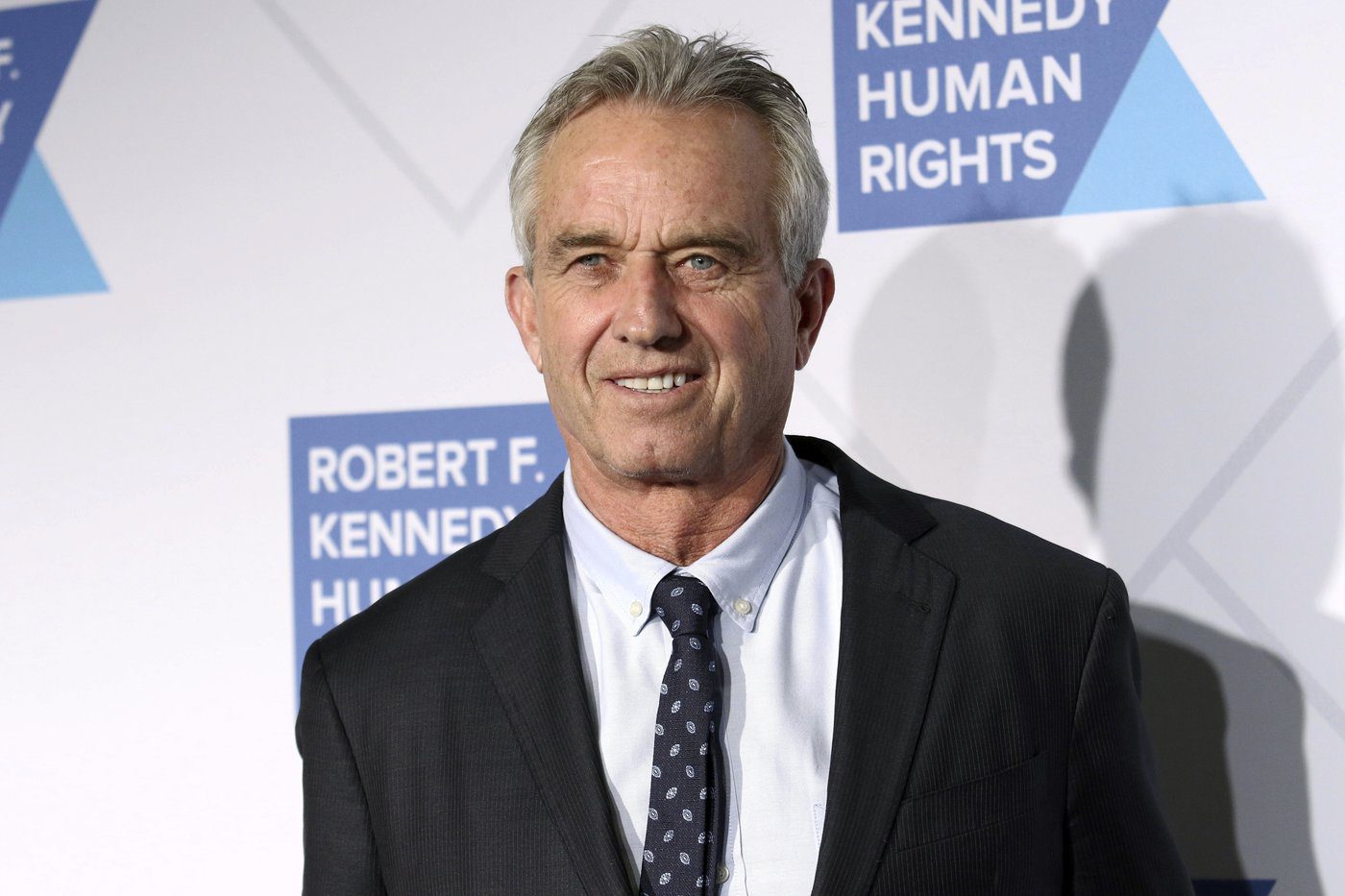RALEIGH, N.C. (AP) — Robert F. Kennedy Jr. can remain on North Carolina’s presidential ballots after a state judge on Monday refused to block printing his name and those of other candidates of the “We the People” party that was recently certified by the State Board of Elections.
Wake County Superior Court Judge Keith Gregory rejected the preliminary injunction request by the North Carolina Democratic Party, which challenged the board’s decision last month that declared We the People an official party.
The board had voted 4-1 to recognize We the People, which has been used by supporters of the environmentalist and author to get Kennedy on the ballot in a handful of states. He otherwise promotes himself nationally as an independent.
Board staff last found We The People organizers turned in enough valid signatures from registered and qualified voters to exceed the petition threshold in state law, which is currently 13,865. Petition collectors also must inform the signers of the general purpose and intent of the proposed party.
Lawyers for We the People and the state said the board granted the certification properly, in keeping with rules approved by the General Assembly.
“You simply asked this court to look at the law and you said the state board didn’t violate it,” Gregory told state attorney Terence Steed at the close of the nearly two-hour hearing. “I agree.”
The state Democratic Party filed a complaint seeking the board’s decision be reversed. It accused Kennedy’s campaign of using the We the People vehicle to evade the tougher standard that state law sets for independent candidates to get on the ballot — the collection of six times as many signatures.
Two of the board’s Democrats joined the two Republicans in giving We the People official party status on July 16. But even one of those two Democrats — Chair Alan Hirsch — said that We The People had engaged in “subterfuge” and suggested the matter was ripe for a legal challenge.
Ray Bennett, a lawyer representing the Democrats in the lawsuit, pointed in court to We the People petition instructions stating the party’s purpose was simply to create a new party to put Kennedy on the ballot. That’s impermissible, Bennett said, and it would otherwise prompt all independent candidates to favor the easier political party signature process.
But Steed and Oliver Hall, a lawyer representing We the People, said the certification law contains no test that the election board must use to decide whether a new party’s purpose is acceptable — rather, it simply must have one.
Hall also said removing We the People from the ballot would be an extraordinary action that violates voters’ First Amendment rights. Gregory sided with Hall.
“It would be unconscionable for this court to attempt to tell a candidate who has decided to use one of the two methods that the method he used is a subterfuge when in fact — if it is or it isn’t — he still complied with the requirement.”
A state Democratic Party spokesperson didn’t immediately respond Monday to an email seeking comment on Gregory’s decision, which the judge planned to issue in writing later and could be appealed.
The Democratic lawyers had asked that Gregory act by the end of the week. State election officials have said that’s when they needed all candidate names for fall ballot printing. We the People said its candidates would include Kennedy and running mate Nicole Shanahan, along with candidates for two other local races.
Democrats are worried Kennedy still has enough left-wing star appeal that he could peel off voters from their presidential nominee, who was expected to be President Joe Biden until he dropped his reelection bid last month. Vice President Kamala Harris has since won the nomination.
Kennedy’s campaign has said he is officially on the ballot in 17 states and signatures have been submitted in 23 more.
Also last month, the state board’s Democratic majority voted to reject the petition drive seeking recognition for the Justice for All Party, which would have put Cornel West on the presidential ballot.
Three registered voters who signed the petition sued the state board in federal court to get Justice for All candidates on the ballot. U.S. District Judge Terrence Boyle hadn’t ruled on the voters’ preliminary injunction motion as of Monday.
Gary D. Robertson, The Associated Press





